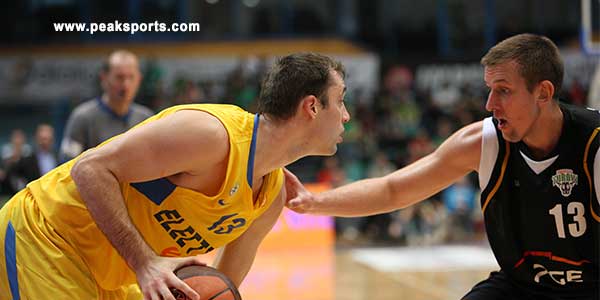
What is a Goal?
Going into a competitive season with realistic goals adds motivation, direction and purpose for an athlete.
Going into a competitive season with excessively high expectations adds pressure, anxiety and distraction for an athlete.
Throw adversity into the equation, things change drastically.
First, let’s examine exactly what goals are and how adversity affects the athlete… A goal is a well-defined, measurable, attainable objective.
More importantly, goals are adjustable. If you reach your goal prior to the end of the season, you can set a new objective to work towards.
Likewise, if an unavoidable circumstance strikes, such as an injury, you can adjust your goal accordingly… Maybe you need to extend the date in which you want to accomplish your goal.
Expectations are rigid. Expectations are usually written in statements such as, “I have to…,” “I must…” and “I need to…”
When it comes to expectations, there is no flexibility. No matter the circumstance, the expectation remains the same.
Expectations generate tension, anxiety and pressure.
These are the very things that interfere with performance and cause athletes to feel that they constantly fall short. When an athlete with unrealistic expectations experiences adversity, they become devastated and feel like a failure.
Every athlete will experience some degree of adversity.
Athletes with realistic goals feel they still have some degree of control and can alter their objectives in a way that keeps them working towards something positive.
Working towards a well-defined, measurable, attainable, adjustable objective helps athletes stay motivated, confident and positive through a wide range of circumstances.
High expectations and injury derailed Philadelphia Sixers’ small forward Zhaire Smith in his 2018-19 rookie season.
Smith was selected with the sixteenth overall pick by the Phoenix Suns in the 2018 NBA draft, then immediately traded to the Sixers. The Sixers had hopes that Smith would be able to contribute to a playoff run.
Smith had high expectations for his first year in the NBA and that pressure caused him to play tight and hesitant last pre-season. Smith was further derailed by a fracture in his foot and an allergic reaction.
Smith played in only eight games during the year. Smith has changed his perspective for the upcoming year and is focused on doing the little things to help the team.
SMITH: “I’m coming in, 16th pick, first-rounder. I’m coming in like, ‘I’m going to drop 30.’ But this year, I’m like, ‘Let’s just have fun and have the game come to me, do the little things and help the team win.’”
It is important, prior to each season, to sit down and write your goals for the season. Make sure those goals are realistic and attainable by the end of the season.
Understand that your goals are fluid. That means your goals are not etched in stone and can be adjusted, if necessary.
With sound goals, you can maintain high confidence, stay focused and sustain your motivation through the season.
Focus on Goals, Not Expectations
The first step is to challenge what you want to accomplish during the upcoming season:
Ask yourself, “Realistically, can I accomplish THIS within the time constraints of this season?”
Consult with your coach or mental game coach and write down specific, attainable, measurable goals for the season and a plan of action.
If adversity strikes, re-evaluate with your coaches and adjust your goals if necessary.
Identify the expectations that lead to pressure and frustration and commit to parking your expectations in the locker room. Instead, focus on small manageable, process goals when you perform.
Related Sports Psychology Articles
- Strategies to Set and Achieve Goals
- Steps to Achieving Your Athletic Goals and Success
- Staying Motivated in Your Sport
*Subscribe to The Sports Psychology Podcast on iTunes
*Subscribe to The Sports Psychology Podcast on Spotify
Download a free sports psychology report to improve your mental game!
Learn more about our one-on-one mental game coaching.
The Focused Athlete

It’s probably no secret that you have many opportunities to become distracted in sports. Athletes are bombarded with both internal and external distractions everyday in practice and competition. Focused athletes are able to get the most from their skills because they are more efficient with practice and more concentrated in competition. Athletes who lack focus let distractions run wild through their mind and don’t know how to adjust or refocus.
The Focused Athlete was developed for any level coach, parent, or junior to professional athlete who wants to improve performance and gain a competitive edge. It does not matter if you are a fledgling junior athlete; or a seasoned professional, plagued with distractions; or you just wanting to learn how to improve concentration…
“The Focused Athlete” is a complete system to teach you how to focus like a champion and harness the power of a zone focus every time you step on the playing field, court, track, or course in practice and games!
